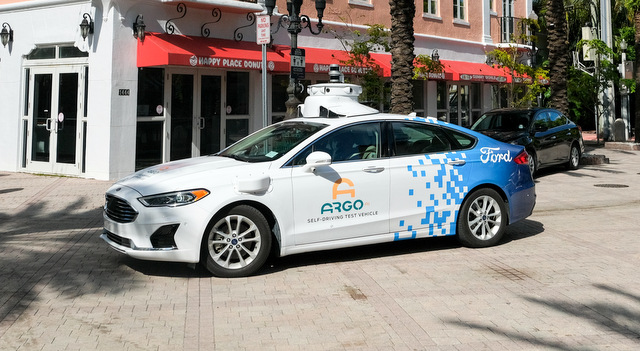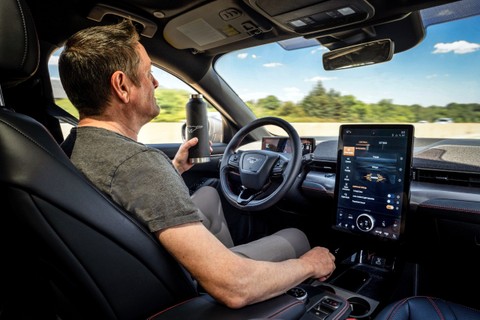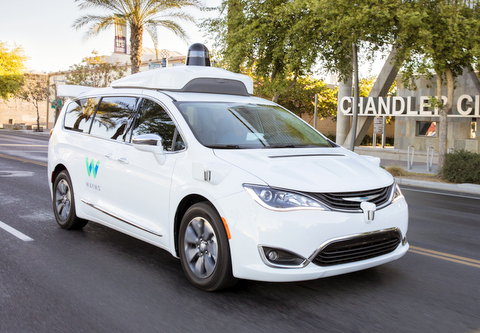Preparing for the Cultural Shift with Neural Manufacturing
The autonomous vehicle (AV) market is undeniably growing at an exponential rate. Within 2021 alone, major announcements have inundated the automotive industry, including Ford Motors’ announcement to invest $29 billion in electric and self-driving cars, Apple seeking an OEM partner to produce the long time rumored Apple Car and a collaboration between Volkswagen and Microsoft for developments in automated driving–signaling that the automotive industry is experiencing a massive transformational shift, preparing AVs for the mainstream.

While there is no question that recent moves in the automotive industry, especially by new start-ups and tier 1 firms that are bringing significant innovation to the market, will put pressure on well-established manufacturers to upgrade their consumer experience. Auto manufacturers will also be faced with growing demands as the industry prepares to meet new conditions of this massive cultural shift among drivers towards autonomous vehicles. As the movement towards AVs loom, in order to keep up with the evolving customer requirements, manufacturers will have no choice but to reimagine their current product and development frameworks and apply advanced AI and connected technologies, an idea referred to as neural manufacturing, to meet the demands of the increasing competition and transition the auto industry is facing.
Neural Manufacturing in Context

Rather than a static practice, neural manufacturing is a framework that enables manufacturers to orchestrate connected, cognitive, and collaborative ecosystems. Connected technologies such as AI, machine learning, automation, IoT and cloud bring unparalleled agility for ecosystem partners to work dynamically and in tandem. This thinking paves the way for transforming businesses and operating models.
Similar to a biological neural system where the key function is to sense, perceive and act, neural manufacturing functions whereby each point within the supply line acts as a “node” that receives and interprets data to meet an end goal through such advanced technologies. This approach transforms the traditional value chain into a more distributive and cognitive system that aids in increasing overall resilience and adaptability for auto manufacturers as significant innovative developments continue to grow within the industry.
Neural Manufacturing for Autonomous Vehicles
As we prepare for the mainstream shift to AVs, the industry will need to find a way to combat the long product development lead times and stricter safety regulations such vehicles require. Implementing a neural framework to an AV value chain is fundamental for manufacturers who need to keep innovating to meet the changing needs of the market. By bringing intelligence and automation into the testing function, the neural framework helps reduce variability in these processes and improves throughput. The neural framework delivers unparalleled capabilities to allow organizations to process and manage the petabyte scale AV data from sensors, camera, lidars and radars, automate the curation of the data at high accuracy and perform “smart simulation”–identify edge cases, calculate and maximize test coverage and simulate at scale. It addresses the fundamental problem in AV validation–which is to identify and validate enough test cases and, at the same time, achieve the coverage and confidence of safety.

Unlike traditional vehicles, AVs require significant collection of data that captures and tests autonomous algorithms. Data such as camera footage, GPS, lidar, radar and control area network (CAN) bus are just a few components in which the AV process requires. This data collected can be in the petabyte scale, which makes processing and managing the collected data a challenging task. This process is not only timely, but also an intensive manual effort. Once the data is processed, the large and varying data set needs to be accurately curated so that they can be utilized to train the numerous algorithms that will be deployed on the AV. Through neural capabilities, this process is automated and streamlined, allowing engineers to focus on quality and safety rather than mundane processes.
While automotive companies possess simulation-enabled validation capabilities, many organizations lack the methodology and the processes to optimize testing coverage across each disposition. By implementing a neural framework, organizations can design, test and consider various amounts of elements across new scenarios and conditions in a timely and connected manner without a need to physically recreate them. In doing so, organizations can leverage more than 100 million miles of driving data already captured to easily create billions of miles of such synthetic data, validating algorithms which in turn minimizes long lead times and creates safe environments for AV drivers. This also allows for significant optimization of product development time and throughput through mechanisms that encourage “drive less and simulate more.” Furthermore, it is not about the number of miles simulated, but identifying the cases that are likely going to challenge the AV-the edge cases. To do this, an intelligent agent needs to be deployed to analyze the various parameter combinations and suggest an optimal set–this is the key to harnessing the value of simulation-based validation.
AVs in the Mainstream
The automotive industry is no stranger to rapid and disruptive change. As digitalization, automation and new business models have revolutionized the global economy, the auto sector has and will be no exception. Given the market potential that AVs hold, to stay relevant, auto manufacturers must reimagine their infrastructure to meet the increasing demands and highly technical supply chains that are required to manufacture AVs.

As big industry players and emerging start-ups prepare for this transformational shift, manufacturers will have no other choice but to adopt a neural framework that helps build value chains with an intelligent edge for smart vehicle development. A slow and steady ratification to traditional manufacturing lines will no longer suffice if organizations want to meet new demands, drive investments and prepare for this mainstream shift into digitalization in the automotive sector. A new industry is forming, vehicles are being reimagined, and manufacturing lines will need to be equipped to be just as smart as these new vehicles to ensure profitability, efficiency and safety for the next generation of drivers.
Story by Laksh Parthasarathy
Make sure to opt-in to the Clean Fleet Report newsletter (top right of page) to be notified of all new stories and vehicle reviews.

16 thoughts on “Tech: Autonomous Vehicles Are Going to Require a New Brain”